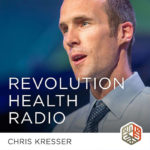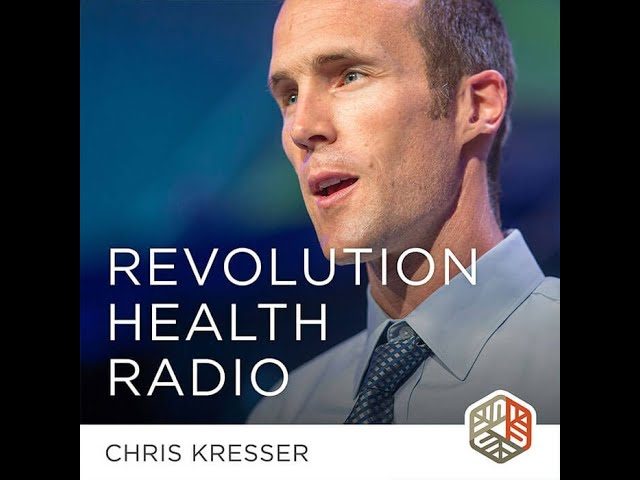
Paleo and Wine: Should You Drink?

After all, the large-scale commercial production of wine has rendered most of the bottles on store shelves today little more than processed foods, which don’t have a place on a Paleo plate. That’s why, in this article, I’ll not only share my tips for choosing a Paleo wine, but I’ll also explore whether or not the beverage is a healthy addition to an ancestral diet. Keep reading for more on the subject, plus my three rules to drink by.
Are you Paleo? Wine may be a great addition to your diet—or it may not. Check out this article to find out whether the good outweighs the bad when it comes to wine. #paleo
#healthylifestyle #chriskresser
Is that Glass of Wine Paleo Friend or Foe?
Some historians speculate that our Paleolithic ancestors did consume wine, at least in the form of fermented fruits. (1) But the earliest evidence of wine purposely made from grapes dates to the Neolithic period; archaeologists unearthed a drinking vessel from that era that contained traces of tartaric acid, which only occurs naturally in large amounts in grapes. (2)
Traditionally, wine was made by mashing grapes and leaving them to ferment in their own natural sugars and yeasts for an extended period of time. Few additional ingredients were added, and intervention was minimal.
The same can’t be said today. Winemakers are now essentially chemists tinkering with a formula. They use an abundance of additives, which take wine from its natural, relatively whole state into processed product territory, and make it much less tolerable to our bodies than it has been historically. In fact, if you’ve ever experienced headaches, asthma symptoms, or even diarrhea after enjoying a glass or two, it might actually be because of what’s added to wine rather than the wine itself.
Some of these additives, which weren’t a part of our hunter–gatherer ancestors’ diet, include:
- White sugar: Many winemakers augment grapes’ natural sugars with refined sugar, in order to boost a bottle’s alcohol content or flavor profile.
- Commercial yeasts: Before 1974, all wines were fermented with their naturally occurring yeasts, but most in the United States today are not. Instead, winemakers opt for commercial yeasts to better control the fermentation process, many of which are genetically modified.
- Purple coloring: This may come as a big surprise to you, but wine isn’t really supposed to darkly stain your teeth, gums, or clothing. The reason it does? “Mega purple” and “ultra red,” super-concentrated and super-sugary dyes winemakers use to produce a product that’s consistent in color.
- Phthalates: Would you like a little plasticizer with your wine? You may be getting it: A study of French wines found dibutyl phthalate, a substance commonly used to increase the flexibility of plastics, in almost two-thirds of the wines tested. (3) Phthalates are known endocrine disruptors that are linked to cancer and fertility issues. (4, 5)
Now you see why I started this article by saying the answer is a little complicated. Yes, wine is technically Paleo-friendly. Our ancestors embraced fermented fruits, and wine can be a whole food, or rather beverage—if you know what you’re looking for. When shopping for a Paleo wine, choose a wine that’s natural and organic, in order to avoid unhealthy additives, as well as potentially harmful pesticides, herbicides, and fungicides.
But in resolving the initial query, we’ve brought up another important question: Is wine good for you?
The Research on Wine and Health
While wine has been associated with some impressive health benefits (more on those below), it’s important to note that some research into wine has been subject to biases. Many epidemiological studies that compared light to moderate drinkers with non-drinkers failed to control for people who abstained completely from alcohol because:
- They have a history of binge drinking
- They are recovering from alcoholism
- They have an illness or were taking medication that prevented them from drinking
As you can guess, if you compare a group of light to moderate drinkers with a group of people who have underlying health issues, the light to moderate drinkers would likely appear to be in better overall health. If that’s the case, it means it’s not certain that the alcohol is conferring health benefits.
As researchers start to control for these confounding factors, their results seem to bear this out. After controlling for participants’ history with alcoholism or past binge drinking, as well as other lifestyle factors like age, sedentary behavior, and diet quality, research shows that light to moderate drinking has no association with reduced all-cause mortality. (6, 7) Similar results have been found in relation to the cognitive benefits associated with alcohol; once controlling for those factors, light to moderate alcohol intake does not seem to protect cognitive function. (8)
It will be interesting to see how research in this area develops as more epidemiological studies control for these biases.
Who Should Avoid Alcohol?
There are instances where alcohol is likely to be detrimental to your health and should be avoided.
- If you have a history of alcohol abuse (or alcoholism runs in your family), avoiding it is the most prudent choice.
- If you take any medications, prescription or not, be cautious about potential interactions with alcohol. Some medications can enhance the effects of alcohol, some can cause extreme drowsiness when combined with alcohol, and others can interfere with or change a medication’s effectiveness.
- If you’re pregnant or are trying to conceive, you should abstain from drinking.
- If you suffer from asthma, have a blood disorder, or have liver or detoxification issues, avoiding all alcohol is probably the best choice.
How Wine Is Associated with Health
Many of the health benefits associated with wine can be attributed to its content of polyphenols, a class of more than 8,000 plant compounds. You’ve probably heard of resveratrol (found in red wine), but it isn’t the only healthy polyphenol; others include:
- Catechins
- Epicatechins
- Proanthocyanidins
- Condensed tannins
- Anthocyanins
- Quercetin
- Phenolic alcohols
- Ellagitannins
Polyphenols are good for our health for several reasons. First, as antioxidants, they reduce the body’s burden of oxidative stress, which is at the root of many modern diseases. (9) Second, they neutralize free radicals, which are very unstable molecules that damage body tissues through volatile chain reactions. (10) Furthermore, polyphenols are good for our guts: They increase beneficial bacterial strains such as Lactobacillus and Bifidobacteria.
Red wine contains more polyphenols than white wine, as the red wine making process also includes grape skin. Although both types of wine have some health benefits, red wine has consistently proven more beneficial than other types of alcohol.
Polyphenols and Heart Health
Red wine has been associated with increased levels of fasting HDL (or “good” cholesterol) and reduced levels of LDL (“bad” cholesterol). (11, 12) Light to moderate wine consumption could be cardio-protective, potentially due to the polyphenols and ethanol present in red wine. (13)
Polyphenols and Cancer
On their own, polyphenols like resveratrol and anthocyanin can inhibit the growth of cancer cells—and even kill them. (14, 15, 16) Polyphenol-rich wine may offer similar anticancer benefits: wine is associated with anticancer effects for lung, prostate, and colorectal cancer and esophageal carcinoma. (17, 18, 19)
Three Reasons Drinking Wine Can Be Risky to Your Health
These exciting benefits aside, it’s important to remember that wine is an alcoholic beverage, and as such, it poses some serious health risks.
1. Alcohol Can Damage Your Liver
If you drink too much alcohol, your liver (and other body organs) will suffer. It’s just that simple. Fatty liver disease, hepatitis, and, after long-term heavy drinking, cirrhosis are all linked to chronic alcohol use. (20)
2. It’s Addictive
Of course, not everyone who drinks will develop a bad habit, but alcohol can be very addictive. Indeed, it appears to be more addicting than heroin, nasally administered amphetamine (or “crank”), cocaine, and caffeine. (21)
3. It Can Make You Depressed
Moderate drinking is linked to lower incidence of depression, but heavy drinking increases the risk. (22, 23) In general, substance abuse is correlated with mental health issues. (24)
Before You Drink, Think of My Paleo Wine Rules
Whether you want to raise a glass to celebrate, or enjoy some wine with food, remember my three wine rules to drink by.
1. Pick Natural, Organic Wines
Look for options made without refined sugar and other unhealthy additives.
2. Drink in Moderation
If you drink excessively, the health risks far outweigh any potential benefits. But having a couple of drinks a week in the context of an overall healthy diet and lifestyle may not cause any problems—unless you have personal reasons for abstaining, bringing us to the final rule.
3. Make Sure Wine Works Well for You and Your Body
Whether wine is truly healthy or a health hazard is highly individual. Alcohol in general, including red wine, may not be a good choice for some people (and excessive drinking is definitely bad for your health). But for others, drinking wine occasionally within the context of a healthy diet and lifestyle may not cause harm.
Good health depends on many factors. It’s better to focus on things like eating nutrient-dense, whole foods, getting enough exercise, maintaining healthy sleep hygiene, and managing stress, rather than zeroing in on one single factor like wine consumption.
Even as emerging research reframes the conversation about whether wine offers health benefits, it doesn’t mean that you can’t enjoy a glass every now and again. After all, experiencing pleasure is also an important part of a healthy lifestyle.
Try a 30-Day Wine-Free Challenge
To determine if wine is a healthy option for you personally, try eliminating it from your diet for 30 days. Then, add back in natural, organic wine, at moderate levels, and see how you feel.
If you don’t have a reason to avoid drinking and wine doesn’t negatively impact your sleep and mood, then moderate consumption could be a part of your healthy ancestral lifestyle. Cheers.






